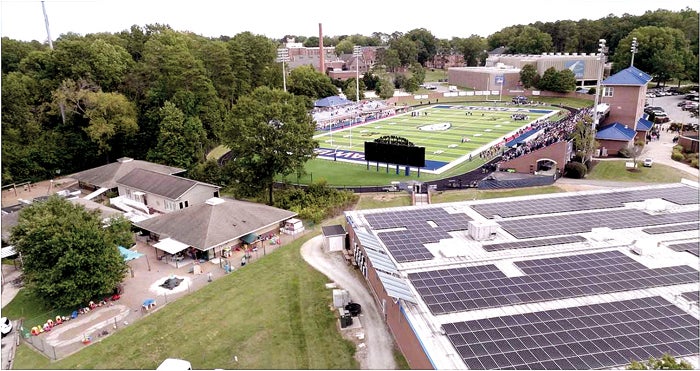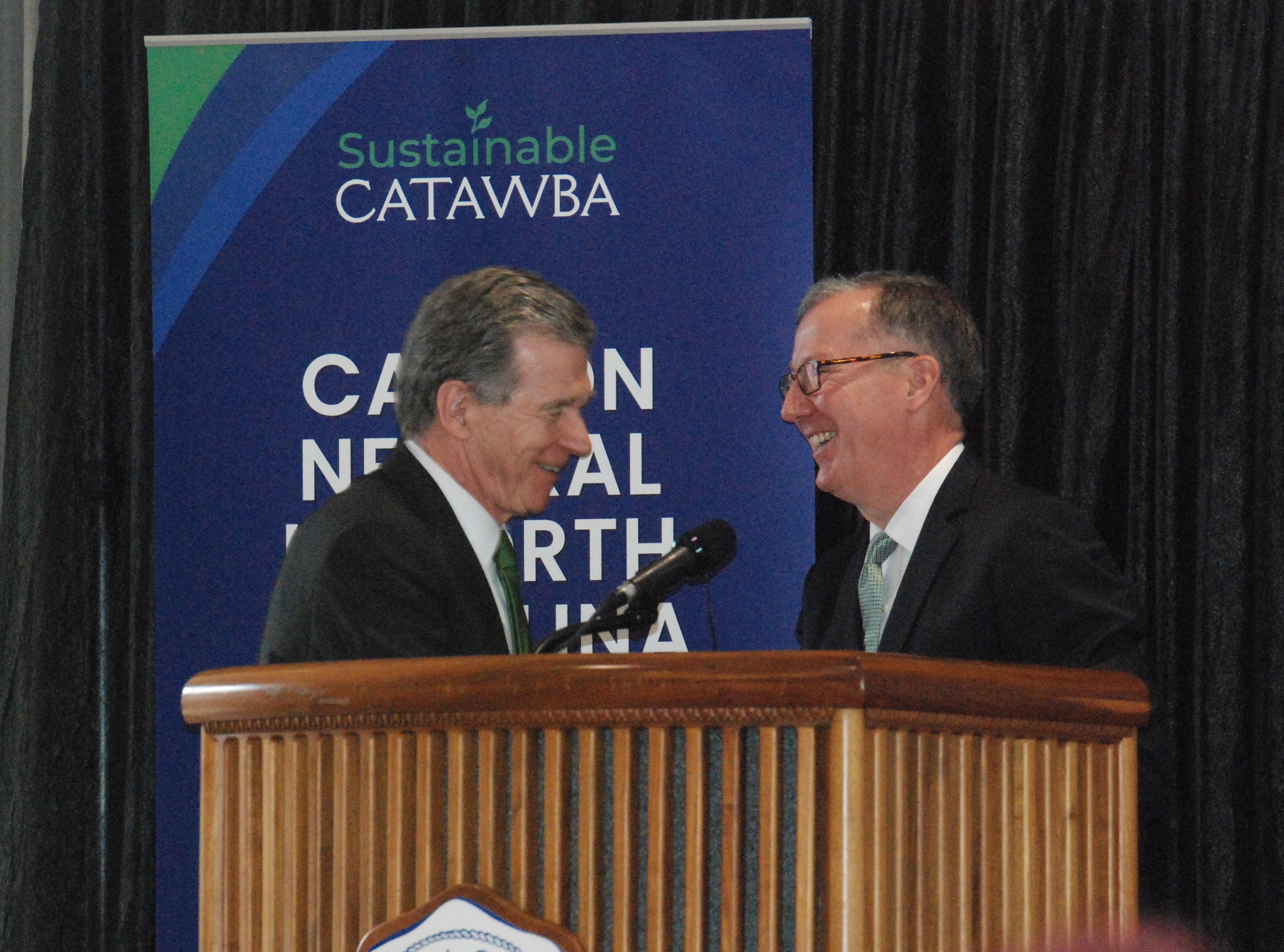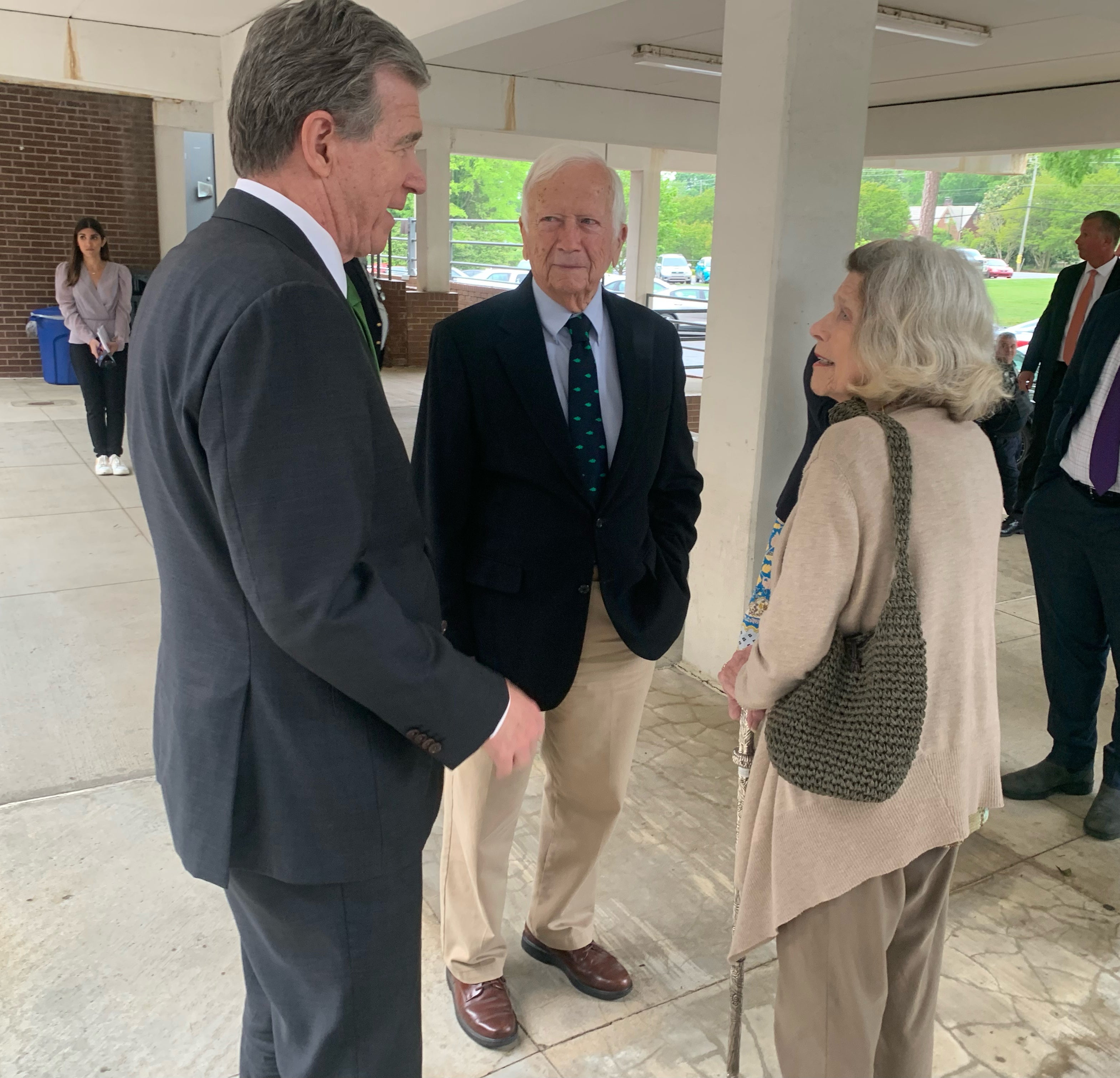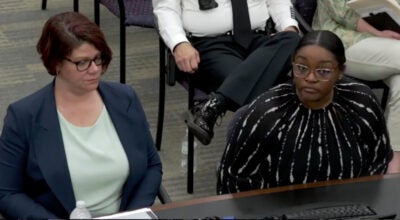Catawba’s climate commitment matters to students, staff
Published 12:10 am Saturday, April 29, 2023
SALISBURY — When Catawba College joined the exclusive ranks of carbon-neutral colleges throughout the United States on Thursday, environmental study students felt honored to be at the forefront of climate change issues.
“I feel it is a huge achievement for the college,” junior Xander Gehron said. “It is something that we definitely strived for to be a green college, especially with the emphasis on our ENV (environment) department.”
Gehron is an environment and chemistry dual major.
“We try to implement it in all aspects of the school, in every discipline across campus, rather than just be one little department, to make it a true campus-wide initiative,” Gehron said.
He’s passionate about his studies.
“I like the world that we have, and I want to be part of the effort to protect it and to invest when possible,” Gehron said. “It helps fuel me for my research and drives me to make changes.”
Catawba’s commitment to clean energy makes Gehron proud to attend the college.
“We promote recycling across campus, “Gehron said. “The recycle bins outweigh and outnumber the number of trash bins across campus. We have multiple avenues to be more sustainable, and refill stations across campus. We have solar panels on almost every building on campus, and we try to generate more energy than we require from the city.”
Other environment students share Gehron’s sentiments.
Harmony Mason is graduating next month, but she worked with the student government association while at Catawba.
“We have been able to put our voices out there,” Mason said. “We get to talk to our peers, see where they are on current issues and what they would like to implement in the school.”
That interaction with students helped Mason realize that other students around the campus are also tuned in.
“I have talked to people who are not even in the environmental realm, but they really do care about saving water or taking shorter showers,” Mason said. “They realize that this is an issue that is going to affect (them) too. It doesn’t matter what department they are in.”
Seeing the campus’s physical commitment to obtaining carbon neutrality confirmed for Mason that she is in the right place.
So what is carbon neutrality, and why was it so important that Gov. Roy Cooper visited Salisbury for the announcement?
Not only was the achievement accomplished well ahead of the timetable initially planned for Catawba, but it was completed before any other colleges in the southeast region of the United States.
In 2007, Catawba College made a climate commitment through Second Nature to achieve carbon neutrality by 2030.
Carbon neutrality is a state of net-zero carbon dioxide emissions that can be achieved by ending the use of coal, oil and gas or by participating in efforts to offset those emissions through other carbon dioxide reduction platforms.
Second Nature is a national nonprofit seeking to accelerate climate action in and through higher education. It established a Climate Leadership Network involving more than 600 colleges and universities in every state and the District of Columbia that have committed to progressive climate change action and preparing students through related research and education.
“One of the underpinnings of the commitment is that higher education needs to practice what it teaches,” said Tim Carter, executive director of Second Nature. “Putting that into practice is a different story. Catawba has not treated it like a thought experiment. It’s one thing to commit to action. It’s another thing to actually achieve it.”
The executive director of the Catawba College Center for the Environment, Brad Ives, explained that the first step to carbon neutrality was to figure out how many carbon emissions the school is responsible for.
“First step to figure that out is to find out how many emissions we have,” Ives said. “The campus did that by breaking emissions down into three scopes.”
According to the U.S. Environmental Protection Agency’s website, “Scope 1 emissions are direct greenhouse emissions that occur from sources that are controlled or owned by an organization, (such as) emissions associated with fuel combustion in boilers, furnaces (and) vehicles.
“Scope 2 emissions are indirect GHG emissions associated with the purchase of electricity, steam, heat or cooling. Although scope 2 emissions physically occur at the facility where they are generated, they are accounted for in an organization’s GHG inventory because they are a result of the organization’s energy use.”
Ives explained that scope 3 emissions are “everything else,” such as purchased goods and services, fuel and energy-related activities, transportation and distribution and waste generated in operations.
Catawba President David P. Nelson added that Thursday’s announcement was decades in the making.
“It didn’t just happen,” Nelson said. “It involved the vision of people who imagined that this could actually happen. It involves a lot of people who did a lot of hard work along the way.”
According to the governor, green, renewable energy is the next frontier for manufacturing and technology, and he wants to make N.C. a premier destination for investment in the fields. He championed Catawba’s accomplishments and encouraged other colleges and universities around the state to follow their lead.
“This is the kind of leadership that we see in North Carolina and that we need right now desperately,” Cooper said.
The governor indicated a desire to see North Carolina stay out in front of the shifting worldview around climate change and fossil fuel consumption.
“The science is overwhelming as to what climate change is doing to our planet even more rapidly than we thought,” Cooper said.
According to the governor, if someone follows the money, they will likely reach the same conclusion.
“You are seeing the private sector react to this,” Cooper said. “The people working to make money for their shareholders understand that this is coming and that they have to brace themselves for it. I have talked to CEOs of major car companies. They are falling over themselves to make sure they get the lead and market share. Good old American capitalism is at work in the car market. In the next five years, you will see an explosion of electric cars … N.C. needs to be out front.”
Challenging the students to reconsider how to go about climate change conversations, Cooper urged them to press the economic impact.
“Even if the fight against climate change is not something you think is important, you cannot deny the economic impact it can have,” Cooper said. “Across the board, people are recognizing that N.C. is the place to come to create good American jobs to push us toward a clean energy future … students are the future of this. Thank you personally for caring about this. We have to convince people that we cannot go backward.”
The race is only just beginning, but the Second Nature director issued another call to Catawba students to resist complacency.
“The first thing to remember is that carbon neutrality is a milestone and not an endpoint,” Carter said. “Achieving this operational target is critical, but it is not the end … you demonstrated you are a leading decarbonization actor, so how can you enable action in others. What does it look like to help Salisbury, Charlotte, the state of N.C. and the Southeast?
“You are a piece of a much larger climate puzzle, and we have to figure out how to fit into a future we all need to shape together.”
More News






